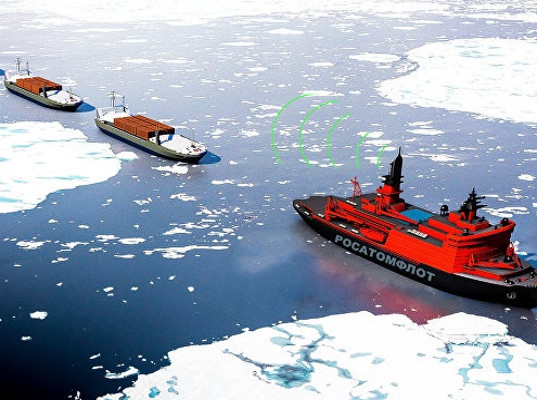 Omsk livestock and poultry farms, as well as grain processors, are anxious about 2020 regarding plans for transshipment of Russian export grain from Omsk and Kurgan regions through the port of Sabetta (Yamal) for buyers in Southeast Asia. Such plans were confirmed by the Deputy Director of the Department of Development of the Northern Sea Route and Coastal Territories of the Directorate of the Northern Sea Route of Rosatom State Corporation Maxim Kulinko.
Omsk livestock and poultry farms, as well as grain processors, are anxious about 2020 regarding plans for transshipment of Russian export grain from Omsk and Kurgan regions through the port of Sabetta (Yamal) for buyers in Southeast Asia. Such plans were confirmed by the Deputy Director of the Department of Development of the Northern Sea Route and Coastal Territories of the Directorate of the Northern Sea Route of Rosatom State Corporation Maxim Kulinko.
Grain is supposed to be transported from the Irtysh and Ob rivers to the north to the Gulf of Ob on river hold barges, followed by transfer to sea ships in the port of Sabetta. Grain supplies are planned to be carried out by the logistic company Zerno Sibiry (Siberian Grain) lobbied by the Omsk government.
Earlier, Governor of the Omsk region Alexander Burkov at a meeting with Deputy Prime Minister Alexei Gordeyev in Moscow on July 29 spoke about a new promising direction for the development of grain exports to Japan through Yamal as part of the national project 'International Cooperation and Export'. Regional and federal authorities are counting on launching the project in 2020 navigation in test mode with a traffic volume of about 300,000 tons.
As experts of the river transport and grain logistics market interviewed by PortNews IAA noted, now grain volumes grown in the Omsk and Kurgan regions are exported by rail through the ports of Vladivostok and Novorossiysk. However, the high cost of railway tariffs makes such a route inefficient. Water transport in this case is much more profitable. Nevertheless, the organization of a new logistics route will require the construction of river barges, according to preliminary estimates of about 90 units. And the Gulf of Ob for the organization of transshipment, most likely, will require additional dredging. The total amount of grain that can be loaded through the port of Sabetta is about 1 million tons for navigation.
Omsky Biocluster press secretary Ravshana Balloeva:
"On the one hand, Omsk grain producers will receive an additional economic bonus as cheaper logistics. On the other hand, Russia stubbornly continues the policy of exporting low-margin raw materials instead of deep processing with bonuses such as salaries and taxes to the region. However, everything is more complicated, and the implementation of the Sabetta plan requires not only the coordinated efforts of the budget and investors of the project, but also the environmental component in the form of an increasing negative pressure on the environment of the northern territories."
Based on zol.ru.

